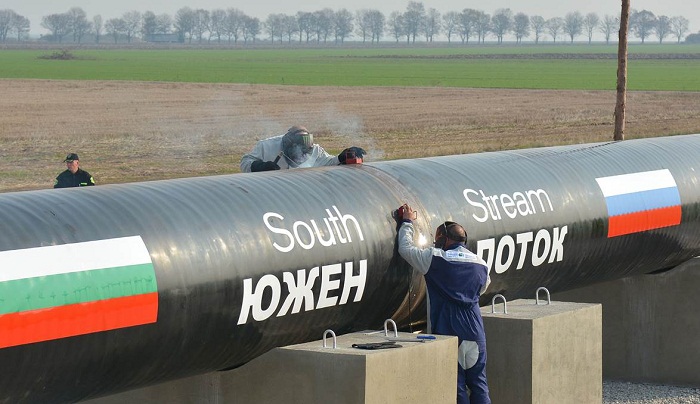Russia suspended the South Stream project, designed to supply Russian gas to Europe bypassing Ukraine, in December 2014. Russia said “the EU’s non-constructive position” was the reason for the project’s suspension.
Then it was decided to build the Turkish Stream through the territory of Turkey, instead of the South Stream. But the project came under threat in late 2015 due to sharp deterioration of relations between Moscow and Ankara.
However, in an interview with RIA Novosti Feb. 9, Russian Ambassador to Turkey Andrei Karlov said his country doesn’t waive the Turkish Stream, saying that it is difficult to predict the pipeline’s further situation amid the crisis in the Russia-Turkey relations.
Aside from that, Russia’s permanent representative to the EU, Vladimir Chizhov has said earlier that he does not rule out the possibility of resuming the South Stream project.
Belogoriev further told Trend that both projects had only a political purpose - to bypass Ukraine, rather than an economic motive.
The expert believes that the Nord Stream 2 project’s implementation in the Baltic Sea is sufficient for the gas delivery to Europe bypassing Ukraine, adding this is seen by Gazprom as a priority.
“Therefore, I think the construction of the South Stream and especially the Turkish Stream will not be considered seriously,” he said.
He added that under the current economic conditions, including low gas prices, the project for the Turkish Stream will be unprofitable, adding that it is much more efficient to supply gas via the existing Trans-Balkan gas pipeline.
The expert recalled that Russia’s Gazprom also has investment plans on the Power of Siberia and the Nord Stream 2 gas pipelines.
However, Belogoriev said that Gazprom has a problem with lending.
“It is too expensive for Gazprom to lend in foreign markets due to the economic situation as a whole, the deterioration of the investment climate in Russia, and the sanctions, which, although indirectly, affect the company,” he said.
“Given the current oil and gas prices, the company has no extra funds to make investment in the Turkish Stream,” added Belogoriev. “I don’t see any financial institutions, which will fund such projects as Turkish Stream and South Stream at normal rates, given that there is no economic need for them.”
As for the prospects of Russia’s refusal to transit gas through Ukraine, Belogoriev said that the demands for gas in the EU can be fully covered if it is possible to build and fully use the Nord Stream 2 and use the idle capacity of the Nord Stream 1.
At the same time, he predicted that the transit of gas to Ukraine’s neighbors, namely, Moldova, the Balkans and most likely Turkey and Slovakia, will continue as it would be very expensive to supply gas there via Poland or Germany.
Belogoriev also said that in case of an optimistic development for Gazprom, the gas transit through Ukraine will be reduced to 20-30 billion cubic meters per year.
But in case of a pessimistic development, he predicted that the transit volume will be much larger, as no one can guarantee the effectiveness of the Nord Stream 2 as part of the EU’s Third Energy Package.
More about:
















































